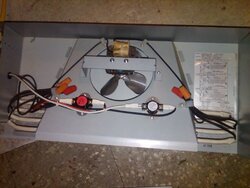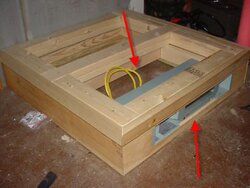Hello,
I have just installed a second stove (pellet) in my upsatirs to avoid having to turn on the oil at all during the cold winter months (oil up here is $4.00/g and up). Local code requires you to replace your oil tank every 10 years, which mine is coming up to next year. Rather than spend $1000 on something I may only use a handful of times over it's life, I would rather not replace it at all.
My "problem" is finding something relatively cheap to use to keep the house from freezing during any absece longer than a few days.
Would installing a handful of electric baseboards be the best option? Any other suggestions? Thanks.
I have just installed a second stove (pellet) in my upsatirs to avoid having to turn on the oil at all during the cold winter months (oil up here is $4.00/g and up). Local code requires you to replace your oil tank every 10 years, which mine is coming up to next year. Rather than spend $1000 on something I may only use a handful of times over it's life, I would rather not replace it at all.
My "problem" is finding something relatively cheap to use to keep the house from freezing during any absece longer than a few days.
Would installing a handful of electric baseboards be the best option? Any other suggestions? Thanks.




